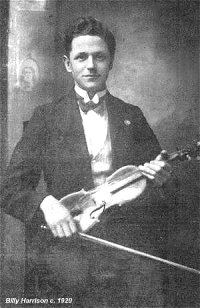This weekend I’m off to the market town of Masham, North Yorkshire, which this year hosts the annual English Country Music Weekend. So to get me in the mood, here’s a couple of North country dance tunes.
I feel like I’ve known ‘The Huntsman’s Chorus’ forever. I wonder if perhaps the Oyster Ceilidh Band used to play it, back in the late seventies, when I first started going to dances. I also feel like I’ve always known of the connection with the Yorkshire Dales, in particular with the Beresford family (although exactly how I would have known that, I’m not sure), and that the tune started life in Weber’s opera Der Freischütz – despite the fact that I’m pretty sure I’ve never heard Der Freischütz, and indeed I don’t think I’m familiar with any of Weber’s work. The Traditional Tune Archive tells us that it is in fact just the first half of the dance tune which can be found in the opera – in a choral piece called ‘Was glecht wohl auf Erden’, which opens the third act. You can hear it on YouTube.
Der Freischütz was first performed in Berlin in 1821, but a version of ‘The Huntsman’s Chorus’ had soon made its way into the music manuscript book (dated 1823) of Joshua Gibbons from Tealby, Lincolnshire – albeit with the title ‘Election Tune, June 1826’.
Clearly the tune entered the country dance repertoire at some point – in the Yorkshire Dales at any rate. Peter Kennedy recorded the tune in 1954, played by fiddle-player Peter Beresford and accordionist George Beresford, at Oughtershaw in Langstrothdale, and it was published, along with an associated dance, in English Dance & Song, February 1965, Volume XXVII No. 2. A copy of the relevant page can be found on the Contrafusion website.
For more information about this tune, the musical Beresford family, the tunes they played, and a great deal more, check out Bob Ellis’ compendious collection of Yorkshire dance tunes There Was None of this Lazy Dancing.
‘The Old John Peel’ is from Cumberland, as far as I know. It was very much part of the repertoire at the English sessions in Eynsham in the late 80s having originally been introduced, I imagine, by Dave Townsend.
We recorded it on the second Geckoes album Art Gecko, and then Ian Anderson featured it on a Folk Roots covermount CD (we were “brand leaders” as I recall). It was as a result of this that I had my one and only play by the great John Peel who, amused by the tune title, featured it on his late night World Service radio show.
Huntsman’s Chorus / Old John Peel
Played on a Hohner four-stop one-row melodeon in C

